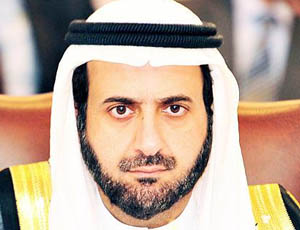 Riyadh, Mar 16: Trade and Industry Minister Tawfiq Al-Rabiah has said that merchants and factories that engage in the adulteration of products in either the Kingdom or China would be blacklisted.
Riyadh, Mar 16: Trade and Industry Minister Tawfiq Al-Rabiah has said that merchants and factories that engage in the adulteration of products in either the Kingdom or China would be blacklisted.
Al-Rabiah made his statement following the signing of a cooperation agreement with the Chinese Public Department for Quality Control, Test and Quarantine, to combat counterfeit and imitation goods during the visit of Crown Prince Salman, deputy prime minister and minister of defense, to China.
The minister pointed out that the agreement aims to reduce the flow of counterfeit consumer goods to Saudi markets by undertaking several measures, including blacklisting merchants and factories that engage in such practices, to prevent the export or import of such goods.
The agreement also calls for blacklisting laboratories and awarding certificates of conformity to counteract this phenomenon.
According to Al-Rabiah, the agreement includes a provision to draft a joint blacklist for exporters and importers of low-quality commodities, in addition to imposing sanctions on the exporter or the source found guilty of such practices.
“It took a long time until we reached this stage, during which the two sides reviewed international trade practices and took into account the experience of the European Union,” he said. “The agreement includes notifying the other party when punishment is incurred on the source and exchanging information on mutual findings. The two countries will also hold follow-up meetings to ensure that the agreement is being continuously implemented.”
The minister noted that the sanctions adopted in the convention would be subsumed under the system of penalties for commercial fraud, which is applied by the ministry. These include systems defamation, fines and other means of punishment within the same system. China will also apply these penalties.
According to Al-Rabiah, penalties prescribed in the system of commercial fraud in the Kingdom are considered very effective in reducing the number of cases of commercial fraud. He said that both sides will hold meetings every three months in Saudi Arabia with commercial attachés in China to ensure the implementation of the convention.
Abdullah Al-Mobty, president of the Council of Saudi Chambers (CSC), described the agreement as one of many milestones in the history of the Ministry of Trade and Industry.
According to Al-Mobty, the volume of trade between the two countries has reached $72 billion. He said trade includes hazardous imitation goods.
He urged Saudi businessmen to take precautionary measures in their business dealings and not to accept questionable goods.
He advised them to send representatives to China to ensure sound product specification and packaging and test samples before shipping. Al-Mobty also warned companies against relying on middlemen and brokers.
Authorities also discussed the idea of manufacturing Chinese products locally rather than relying solely on imports from China in order to support national industrial and commercial growth.







Comments
Add new comment